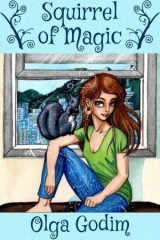Olga Godim's Blog, page 37
June 4, 2014
Quality and quantity
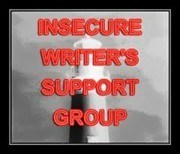 A post for the Insecure Writer’s Support Group
A post for the Insecure Writer’s Support Group
Internet marketing gurus say that the more books a writer has available online, the better her chances of sales (and income). Many indie writers take the advice to heart. Recently I read on one writer’s blog that she is going to write and publish 25 novels in 5 years. It’s a commendable goal: 5 novels a year. She is probably going to end up with many sales (and a nice income), but the number baffled me. How many novels can I write in one year?
Not nearly that many. Sure, I can type as fast as an average typist and produce four or five books a year, and I’m talking about novel-length, at least 60,000 words, not short stories, but to produce GOOD books, I need much more time. Each book needs at least three rewrites, maybe more. Here is a quote from the writer of Jurassic Park, Michael Crichton: “Books aren’t written – they’re rewritten…It is one of the hardest things to accept, especially after the seventh rewrite hasn’t quite done it.”
If Crichton needs more than seven rewrites for a book, so do I. Plus I would have to come up with new and original plot twists, contemplate story structure, work on character development and other craft elements, and implement everything for each book. In my estimation, one professionally-written book needs a minimum of six months or more.
In the past, when nobody used the self-publishing road and big publishers ruled the book world, it was customary for prolific writers to release a book or two a year. Donna Tartt needed a decade to write The Goldfinch, which received the Pulitzer Prize in 2014. Some might consider such a long gestation time for a book extreme, but one year was average, and the time allowed writers to polish their craft. Quality was the goal, and each book was custom-made.
But if quantity becomes the goal, as seems to be the case now, self-publishing will go the way of the assembly-line belt: more and cheaper. Then, like in any other mass-production industry, quality will inevitably suffer.
 To get their quick income, some writers are willing to forgo quality and opt for quantity. Am I ready to go that road? No! I’d rather my income suffered than have my name associated with sloppy writing and dull plotlines. But gosh, I do want that income…
To get their quick income, some writers are willing to forgo quality and opt for quantity. Am I ready to go that road? No! I’d rather my income suffered than have my name associated with sloppy writing and dull plotlines. But gosh, I do want that income…


May 27, 2014
Fantasy Character Interview #18
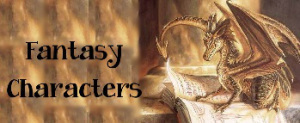 Please welcome Gilgamesh, one of the leading characters of Jordan Morris’s contemporary YA fantasy novel Round and Round.
Please welcome Gilgamesh, one of the leading characters of Jordan Morris’s contemporary YA fantasy novel Round and Round.
1. Tell me a little about yourself—name, profession, home, family, the usual.
I’m Gilgamesh. You know, the King of Uruk, two-thirds god, one-third human. The hero of the first ever piece of literature. No? Man, what do they teach you in the 21st century? The Epic of Gilgamesh is just what it says on the front tablet: it’s epic and it’s about me. I’m also a special guest star in Jordan Morris’s novel Round and Round.
2. What happened to you, so you ended up in this crazy adventure the novel talks about?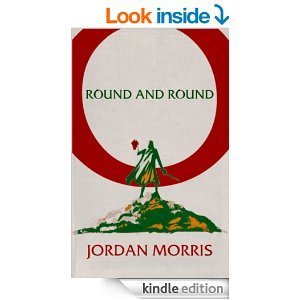
Back in my day there was only one story – mine. But now, the past is full of stories. So Round and Round is ‘inter-textual.’ My Epic of Gilgamesh was told over twelve tablets, just as Round and Round is told in twelve chapters. If you read Tablet 11 and Chapter 11, they’re basically the same story, except one is about me and my grandfather, Utnapishtim, five thousand years ago, and the other is about Noah, the teenage kid whose granddad has been reincarnated into today. The novel asks us to question if we’re doomed to repeat our mistakes time after time, or if we can break the cycle. Round and Round is about mortality and immortality, power and powerlessness, friendship and love. I know all about that stuff. Once I swam all the way down to the sea bed, from which I plucked boxthorn – the plant of immortality. I was totally going to share it with the rest of mankind. But a serpent stole it from me. That’s why snakes can shed their skin to become young again, but we can’t. They’re a recurring motif in Round and Round – snakes – particularly the symbol of one eating its own tail: that thing seems to be popping up all over the place.
3. So do you ship Dora-Bastian (Eclipse) or Evie-Bastian (Evian)?
Okay, so the other protagonists in the novel are Noah’s best mate Bastian; Noah’s sister, Evie; and her BFF, Dora. As I told you I know all about friendship and love. Pulling every girl in Uruk used to be part of the daily grind for me as king, if you know what I mean. Ishtar – the goddess of love – proposed to me, and I turned her down. Treat ’er mean and keep ’er dad sending bulls to kill you, I always say. That’s one of the problems with Bastian – he’s too obvious. That guy has been gaga over Dora since the day they met, and he’s blind to the fact Evie actually likes him. She’s a sure thing; Dora is a challenge. So do I ship Eclipse or Evian? Let me tell you a story.
When I was young, I dreamt of a shooting star that fell to Uruk, so grand and monumental that even I could not move it. The meteorite was the only thing that could ever rival my own awesomeness, and I loved it. My mother said the dream was a prophesy of the great friend I would one day have – my equal – Enkidu. As I say in Round and Round, “Enkidu pointed out my injustices, made me see my faults. He made me a great leader of men. And women. From that day, I did everything with Enkidu at my side. Together we logged the forbidden cedar forest and built a monumental gate for our city. We decapitated the demon Humbaba and slew Gugulanna the bull of heaven. Enkidu was my best friend, my soulmate. And then the gods decided to kill him.” I ultimately learned that great friendship – like the shooting star in the sky of my dreamscape – is ephemeral. Which is why I ship Noah-Bastian. Mates before maidens, that’s what I say.
~~~~~~~~~~~~~~~~~~~
You can find out more about Jordan Morris on his blog or his Facebook.


May 19, 2014
My “lively” characters…
Open Book Society posted a nice 4-star review for Almost Adept. Here is an excerpt:
“I had a lot of fun reading this book from beginning to end. It is very fast paced and has surprised me at every turn. When I started reading it, I had no idea that I would enjoy myself so much. The characters are extremely lively and real. You get to know them well…and can’t help but root for them. The magic is really cool and very elaborate. And the whole atmosphere is permeated by a feeling of medieval romance.”
I’m happy. :))


May 17, 2014
Magic = Responsibility
First posted on Worlds of the Imagination.
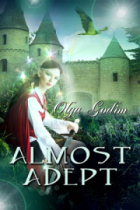 When we hear the word ‘magic’ in our mundane world, we always imagine something pleasing, like a magic show, or our masseur’s magic hands, or a fantasy book we have read recently. But in Fantasyland, magic has a different connotation. In fantasy stories, magic is a gift and a responsibility.
When we hear the word ‘magic’ in our mundane world, we always imagine something pleasing, like a magic show, or our masseur’s magic hands, or a fantasy book we have read recently. But in Fantasyland, magic has a different connotation. In fantasy stories, magic is a gift and a responsibility.
In my novel Almost Adept, the protagonist, young magician Eriale often encounters situations where her magic is necessary to deal with a problem. And she can’t shirk that responsibility, no matter how much she might want to.
Once, she came upon a burning village. Of course, she extinguished the fire first and then searched for its source. She found it too—a five-year-old boy, gifted with fire magic but untrained. She didn’t want to play a babysitter to a grubby urchin, didn’t want to leave the village in a hurry, without rest or food, but she did both. She considered it her responsibility to take care of the fledgling mage, to whisk him out of peril. If she didn’t, the angry villages might’ve killed the kid. Eriale was the only one who could help him, so she did. She grumbled, of course, but she never hesitated.
Later in the novel, Eriale faced a much more devastating dilemma: help her sweetheart to fight his enemies or risk losing him but help magic apprentices, abused by their evil master mage. She knew that while he might find others to assist him…or not, the apprentices had no advocate but her. Again, her magical abilities dictated her actions.
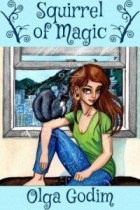 Unlike Eriale in her imaginary, quasi-medieval world, Darya, the protagonist of my short story collection Squirrel of Magic lives in modern Canada. Darya is a good witch, and like Eriale, she feels it her responsibility to help people in trouble. Some of those she helps are her friends. Others are strangers. It makes no difference. If her magic can help them, she must get involved, no matter her personal cost. Even if that cost includes the good opinion of her boyfriend or the risk of getting arrested.
Unlike Eriale in her imaginary, quasi-medieval world, Darya, the protagonist of my short story collection Squirrel of Magic lives in modern Canada. Darya is a good witch, and like Eriale, she feels it her responsibility to help people in trouble. Some of those she helps are her friends. Others are strangers. It makes no difference. If her magic can help them, she must get involved, no matter her personal cost. Even if that cost includes the good opinion of her boyfriend or the risk of getting arrested.
Neither of my magical heroines can ignore her magic. It rules their lives, brings unique joys and unique sorrows. Like any power, their magic implies responsibilities: to the people around them as well as to themselves.


May 16, 2014
20 questions with Anka
May 15, 2014
Giveaway on LibraryThing
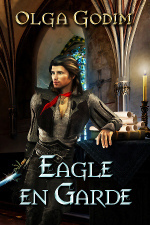 Today I entered my latest novel, Eagle en Garde, as a Member Giveaway on LibraryThing. The giveaway will last until June 5. Per my publisher’s permission, I can only offer 5 copies for the giveaway, and I already have 1 request. Click here and scroll down until you see my book.
Today I entered my latest novel, Eagle en Garde, as a Member Giveaway on LibraryThing. The giveaway will last until June 5. Per my publisher’s permission, I can only offer 5 copies for the giveaway, and I already have 1 request. Click here and scroll down until you see my book.


May 7, 2014
Friends and reviews – incompatible?
 It’s the first Wednesday of the month again and the time for another post for the Insecure Writer’s Support Group. This time, I want to explore the touchy topic – reviews.
It’s the first Wednesday of the month again and the time for another post for the Insecure Writer’s Support Group. This time, I want to explore the touchy topic – reviews.
There is an ongoing dispute on several book sites: reviewers vs. authors. Reviewers defend their liberty of speech, their license to express their opinions freely. Authors argue that their works shouldn’t be defiled in public. They scream that the reviewers are fools and don’t understand. Tempers rise. Insults fly. The online book community takes sides. As in many disputes, both opponents are right… and wrong.
I’m both, a writer and a reviewer, so I sympathize with both sides, but for this post, I chose to be a writer only. Recently, I watched an episode of my favorite TV show, Bones, where one of the characters, Clark, wrote a novel and asked his friends from the forensic lab to read it. He said: “You don’t have to compliment me. I want your honest opinion.” They didn’t like the book but couldn’t tell him the truth. They lied, complimented the book, and made him happy. Of course, he didn’t want an honest opinion. He craved praise. All of us, writers, do.
Like Clark, I want people to enjoy my book. I want good reviews. More than that, I need them desperately, because for a beginner writer, bad reviews are deadly. When I send my novel to reviewers, I’m holding my breath. How many stars would I get? How many faults would they find? Would they like it? Would they thrash it?
But the reviewers are not my friends. Unlike Clark’s friends, most reviewers wouldn’t lie to placate my sensitive writer’s ego. Just the opposite, they revel in their ability to critique smartly, use cutting words, and distribute their sentiments as widely as possible. Sometimes, reviewers are extremely harsh and they don’t care what wounds their merciless judgment inflicts.
There are a number of benevolent reviewers too, those who don’t write bad reviews. If they don’t like a book they don’t review it – a dream coming true for a writer. But not all are so kind. Most books have flaws, and the reviewers spot those flaws and expose them ruthlessly. They flaunt their honesty, but sometimes, the borderline between honesty and cruelty is hard to see. How about a little kindness? Surely, there is something good to say about any book.
As most reviewers wouldn’t compromise their integrity, even for a friend, I hesitate to offer my books for review to any of my online friends. I’d like to know their opinion, but only if that opinion is positive. Yes, I’m that pathetic. What if they don’t like it? I don’t want to put them in an awkward position, to jeopardize our friendship. Would I want them to lie to me? Of course! Like Clark from Bones, I hanker for adulation. Show me a writer who doesn’t. But I don’t want to force my friends to dissemble, and I couldn’t bear it if they trounced my book, so I don’t ask. The only reviewers I approach are those who don’t know me. And then, I wait for their verdict. They hold my fate as a writer in their hands. Maybe this time, they’ll like my book.


May 6, 2014
Fantasy Character Interview #17
 My new book, the sword-and-sorcery fantasy novel Eagle En Garde, #1 in the Eagle series, was just released by my publisher, Burst Books. Please, meet Darin Barclay, the protagonist of the novel.
My new book, the sword-and-sorcery fantasy novel Eagle En Garde, #1 in the Eagle series, was just released by my publisher, Burst Books. Please, meet Darin Barclay, the protagonist of the novel.
1. Tell me about yourself—name, profession, home, family, the usual.
My name is Darin Barclay. I’m twenty-four years old. I’m a lieutenant of the mercenary company Eagles of Coll. I have a hundred fighters under my command, swordsmen and archers mostly but also a couple of healers and a few grooms. Our company is the best mercenary outlet in the kingdom of Talaria. I have been with the company for eight years: the first three as a soldier, and the last five as an officer.
What else? I’m an excellent swordsman. It’s not an empty boast. My mercs consider me the best sword of the Eagles. Some even say I’m the best in Talaria, but I’m not sure. I haven’t competed against all the swordsmen in Talaria. But I fought practice fights against all our men and I almost always win. One of my most treasured books is a rare volume on sword fighting technique. It was written almost a hundred years ago by a legendary swordsman. I still haven’t mastered all the complicated combinations in the book but I’m at about 75 percent.
My family? My mother died when I was three; I don’t remember her. My father was never in the picture. I grew up with my uncle’s family. He owns an armory shop. At sixteen, I joined the Eagles. I haven’t been home since, but we often write letters to each other. This year, after the fighting season ends, I’ll finally visit home.
2. What happened to you, so you ended up in this crazy adventure the novel talks about?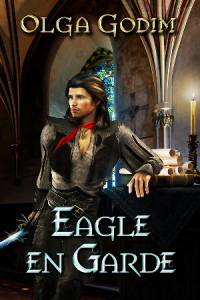
It all began several decades ago, when a power-crazy sorcerer raised a spell around the Talarian border. The spell doesn’t allow magic or magicians to cross into Talaria. Although the sorcerer is long dead, his spell lingers.
Our king wants to lift the spell, to invite magic back into the kingdom, but the fanatical sect of Cleaners wants the opposite: to prevent the return of magic. Cleaners have always been troublemakers, but recently, their activities spiked. They started killing witches and harassing elves all around the country. They say they are ‘cleaning’ the land from magical contamination, and some people support their agenda, but in my opinion, it’s just butchery and bigotry. That’s why I became embroidered in the reckless adventure of this book: I saved a couple of witches from Cleaners, and that started the entire escapade.
It appears that Cleaners hatched a much more sinister plot than merely eliminating witches and elves. They plan a royal assassination, but I won’t go into specifics. Let’s just say that I have to stop them. You’ll have to read the book to find out the details.
3. You’re a mercenary. Would you ever work for free?
Well, you’ve got me. I shouldn’t and I don’t usually, but once I found out about that murderous plot of Cleaners, I couldn’t let it go. The safety of the entire kingdom might be at stake. I have to intervene, to do everything possible to prevent the fanatics from succeeding. On the other hand, I won’t risk my men’s lives with no contract and no paying client. I have no proof, just vague suspicions and my own convictions that whatever Cleaners concocted can’t be good. They’re zealots, hating everything beautiful and different. So I’m sending all my soldiers home. I will risk my own life but nobody else’s. Of course I can’t oppose a horde of Cleaners by myself; even my sword isn’t that good. But there are other methods. I can fool them, rob them, trick them. I’m a mercenary, so anything goes.
~~~~~~~~~~~~~~~~~~~
Buy the book:
Amazon (Kindle)
Champagne/Burst (ebook)


April 28, 2014
Blog hop – My writing process
I just published a collection of urban fantasy short stories Squirrel of Magic, on sale now at Smashwords and Amazon. All the stories are united by the same protagonists, young witch Darya and her familiar, squirrel Beatrice. They live in Vancouver, Canada and use Darya’s magic to protect the city from evil. So far, they have disarmed a bomb, thwarted a bank robbery, punished a wife abuser, and rescued a fashion show. And they always help friends in need.
My current project is a novel about young magician Eriale, the protagonist of my novel Almost Adept, which is #1 in the Adept series. The new novel, tentatively called Adept Seaworthy, is #2 in the Adept series. This novel picks up soon after Almost Adept ended. In the new story, Eriale is thrust into a complex scenario involving kidnapping, pirates, an evil mage, and a vendetta between her distant relatives. She has to deal with all those predicaments before she could return home.
I work on this series out of sequence. The first draft of Eriale’s story #3, tentatively titled Adept Meddling, is already written, but I let it lie for a while before I come back to it for revisions. I also have plans for more Darya stories.
 2. How does my work differ from others in its genre?
2. How does my work differ from others in its genre?
Many high fantasy writers write about battles, wars, and political machinations. I don’t. Usually, my heroes have smaller obstacles than a power-grabbing maniac bent on world-domination or a global disaster. Instead of saving the world, my protagonists might save a village, or liberate a town, or help a few people who need their help right now. They solve human problems and apply human solutions. My favorite fantasy writer, Sharon Shinn, uses such an approach too. Maybe that’s why I like her books so much.
Of course, there are struggles and confusion in my stories; it’s impossible to write fantasy without at least some kind of violence, but I try to keep it to a minimum. If a non-violent, smart solution could be found, my heroes would find it.
3. Why do I write what I do?
Why do I write fantasy? Obviously, because no research is required. Well, that’s a bit of a joke, but it’s the truth too. I write high fantasy because I can invent a world and all the rules in it, and nobody can naysay me. It’s my world after all. Furthermore, fantasy allows me to escape reality. That’s why I read fantasy and that’s why I write it – escapism pure and simple. I imagine my heroes talented and brave, able and smart. You read about them and you forget (I hope), if even for an hour, that you need dentures you can’t afford, that your bills are overdue, that your boss is an asshole, that your mom is eighty and getting weaker every day, and you’re helplessly watching her slip away. If I can give my readers this tiny escape from their worries, then I’ve done my job as a writer.
As for modern fantasy – those stories just came to me. I didn’t plan to write them. I wrote the first Darya’s story in 2007, as an experiment, and it came out funny. I never considered myself a humor writer, but how could I write about a telepathic squirrel without at least a bit of humor? I liked the squirrel and her witch, and the stories kept coming over the years. I try to make Darya’s solutions as unorthodox as possible. She doesn’t wield a sword in her fight against evil, she wields her wits, and Beatrice helps.
4. How does my writing process work?
I’m a plotter. I need to know what happens with my characters before I write. Often, I have a writer’s block when I don’t know how my hero could extricate himself from this particular quandary, when I back my writing self into a corner. Fortunately, sometimes a story takes over. I would be typing, following my rough outline, and then my hero would meet someone unexpected, have a chat, and the story would veer into an unforeseen direction. Such little detours often enrich my stories and my characters, but I always return to my general outline in the end.
I also need the right names. Selecting a right name for a character is imperative. Sometimes it takes months. I would look through a book of baby names and shuffle letters in the existing names and words. A name must feel right, and it’s an intuitive process. I can’t explain it. I have a draft of a novel where I’m not satisfied with one of the names, and it bothers me. I need to find the right name before I start revisions.
~~~~~~~~~~~~~~
Thank you, Stephanie Joyce Cole, for tagging me for this blog hop. Talking so much about myself is fun. Unfortunately, I didn’t realize at the time I agreed to be a link in this chain how much work it is to find the next links. So far, I’m the last.
Stephanie Joyce Cole lived for decades in Alaska. She and her husband recently relocated to Seattle, Washington, where they live with a predatory but lovable tailless Manx cat named Bruno. Stephanie has an MFA in Fiction Writing from the University of Alaska, Anchorage. When she’s not writing, she’s hiking, creating ceramics, practicing yoga, traveling, volunteering and discovering new ways to have fun–and oh yes, always reading, reading, reading.


April 27, 2014
Fantasy Character Interview #16
 Today, my guest is Sarya dyr-Rusac, the protagonist of Kyra Halland’s romantic fantasy novel Sarya’s Song.
Today, my guest is Sarya dyr-Rusac, the protagonist of Kyra Halland’s romantic fantasy novel Sarya’s Song.
1. Tell me a little about yourself—name, profession, home, family, the usual.
My name is Sarya dyr-Rusac. I don’t have a proper family name; it just means I’m the daughter of a man named Rusac. I’m 25 years old.
My father was a miner in the Burnt Hills. I lost my family when I was eight years old, when my father fell into debt and my entire family was sold as slaves to pay off his debts. I was too young to be worth buying as a worker, so I was left to fend for myself in the mining town where we lived. It was not a good childhood.
I used to be an Arranger in the musical Service in Sucevita, the greatest city on the continent of Msaka Dolna. Being an Arranger means that I would arrange tropes, which are melodies that have magical properties, into pleasing musical arrangements for weddings and other important rituals. A wedding ritual I arranged went terribly wrong, and I was forced out of my job and my home, and became a traveling minstrel. That hasn’t worked out so well; times are hard right now.
I love to sing, though my voice isn’t the kind of voice that they want for the choirs in the Service, and write songs, and play my lute. If I have that, and something to eat and a place to sleep, I can’t ask for anything else. There are some things I’ll never do, though, no matter how cold and hungry I am.
2. What happened to you, so you ended up in this crazy adventure the novel talks about? 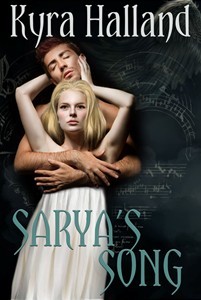
I have a rare talent for being able to hear these tropes, or magical melodies, as they occur in nature. At the time of the problem with the wedding ritual I wrote, I had begun hearing other tropes that were previously unknown. A large number of disasters never seen before were also happening in the world—extreme weather, earthquakes, uncontrollable plagues. Then one day I heard some mysterious and powerful music in the wind—the wind actually played it on my lute. That got me thinking, and I realized that all these different things must be related somehow, so I decided to return to Sucevita, to the Skola, or music school, to look for answers. And that seemed to trigger some strange things to start happening. Someone does not want me to find those answers.
3. What’s the most important thing in the world to you?
My freedom, my integrity, and my music. And, I hate to admit it, because he’s a rich, arrogant, overbearing ass who has no morals, but my friendship—if that’s what you’d call it—with Adan Muari means a lot to me. He’s the only friend I have, and the only one at the Skola who’s willing to accept someone like me, from a poor background, with no family or social position, more or less as an equal.
~~~~~~~~~~~~~~~~~~~
You can find out more about Kyra Halland on her website, Facebook, Google+ or Twitter.
Buy the book:
Amazon
Smashwords
Omnilit






